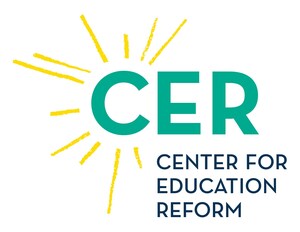Education Reformers Vow Renewed Campaign Against Charter Myths, Faulty Data
New campaign kicks off National Charter Schools Week 2010
WASHINGTON, May 3 /PRNewswire-USNewswire/ -- The Center for Education Reform (CER) is readying a full-scale public information and advocacy campaign after faulty and inaccurate data about charter schools is once again prominent front page news in The New York Times.
In calling on supporters to use National Charter Schools Week—this week—as an opportunity to tell the stories of charter success in their communities, CER said that the organization will bring to light the scores of real data about the achievement, the composition and the character of charter schools in the hopes that editors at papers like The New York Times take a bigger, broader view of the critical reform effort in the future.
According to CER, the Times article's hypothesis, that "the majority of the 5,000…charter schools nationwide appear to be no better, and in many cases worse, than local public schools," is demonstrably inaccurate and based on widely discredited research by a California group called CREDO.
CREDO's work "contains a serious statistical mistake that causes a negative bias in its estimate of how charter schools affect achievement," according to a widely-cited 2009 analysis by Caroline Hoxby of the National Bureau of Economic Research and Stanford University.
CREDO's conclusions rely on the creation of "virtual twins" from traditional public schools to compare to real charter school kids, a methodology fraught with error. The data used to assess poverty—and thus compare students—is widely acknowledged by the government to be flawed as it is often self-reported and rarely validated.
"Overwhelming, peer-reviewed research demonstrates that charter schools disproportionately serve disadvantaged students and educate them at higher levels than traditional public schools," said Jeanne Allen, president of The Center for Education Reform (CER). "The notion that The New York Times is allowing one biased and discredited report to trump the overwhelming body of evidence demonstrating the success of charter schools is more than troubling, it borders on journalistic malpractice."
Far from underperforming, America's charter schools are generating stellar learning gains in students. Research demonstrates that students in charter schools are more likely to be proficient in math and reading than their public school counterparts—despite the fact that charter schools receive far fewer funds than traditional public schools.
In 2009, the most comprehensive study on charter schools ever performed—on students and schools in New York City—found that low-income, disadvantaged children who went to charter schools for their academic careers boasted the same academic performance levels as their affluent peers in higher-income neighborhoods.
"Charter school success is not up for debate—it is settled fact. Parents across the country know that charter schools are making a positive difference in the lives of their children," Allen said. "In fact, to satisfy the overwhelming parental demand for charter schools, we'd need to double the number of schools available in America today."
CER said today that it plans to mobilize its 50,000 members and 1 million friends to contact their policymakers and their local press to clear the air on charter schools. The Center will be rolling out toolkits and other information to parents and charter leaders early this week.
For more information, visit www.edreform.com.
The Center for Education Reform drives the creation of better educational opportunities for all children. CER changes laws, minds and cultures to allow good schools to flourish.
SOURCE Center for Education Reform
WANT YOUR COMPANY'S NEWS FEATURED ON PRNEWSWIRE.COM?
Newsrooms &
Influencers
Digital Media
Outlets
Journalists
Opted In





Share this article